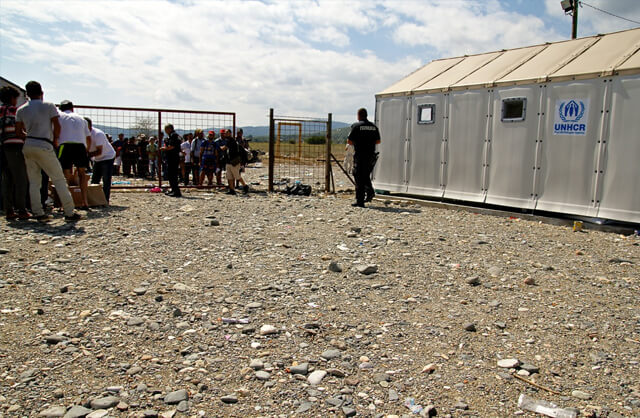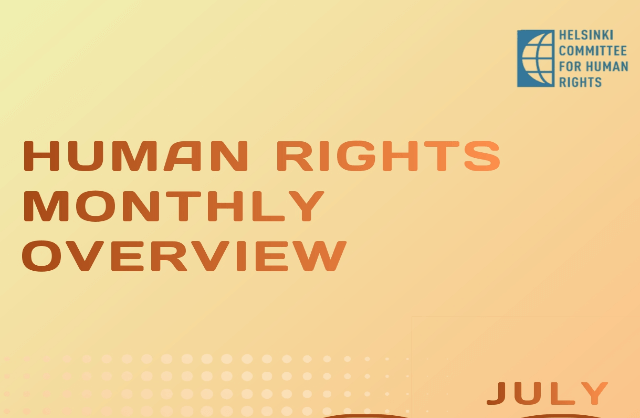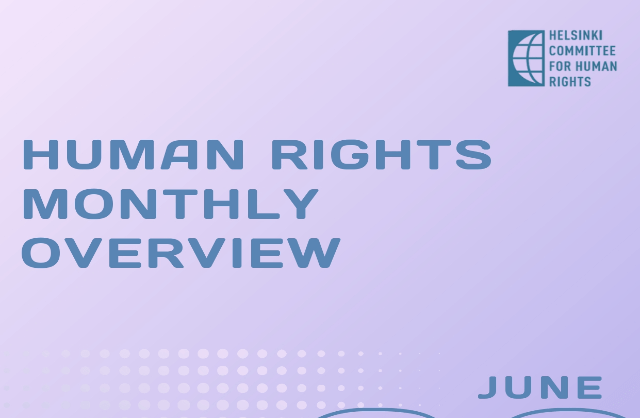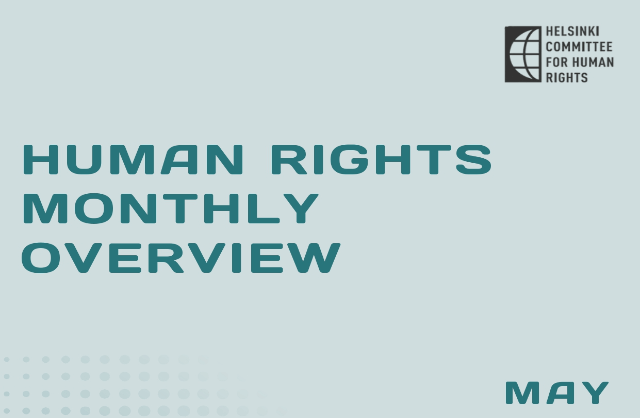The situation at the border crossings Gevgelija and Kumanovo for the period: 04.01.2016 – 10.01.2016
January 12, 2016

The weekly report on the situation at the border crossings Gevgelija and Kumanovo includes the following topics: Available facilities and conditions at the camp and Institutional treatment. The report can be downloaded at the following link.
Gevgelija
Available facilities and conditions
11,211 refugees were registered during this period, which is 30% less compared to last week, when a total of 16,014 refugees were registered.
The camp is functioning in the best of order, without any irregularities. The camp hygiene improved in the course of this period.
The cigarettes smugglers who used to sell through the fence could now be spotted inside the camp. After being reported by the observers, they left the camp.
Institutional treatment
At the start of the week, the camp was visited by two groups of about 15 representatives of the Hungarian police, in order to get acquainted with the manner of functioning of the camp, the registration process, the treatment of refugees and their transportation. In the course of the week, apart from the Hungarians, there were also representatives of the Serbian police, and a Czech delegation also paid a visit.
A decrease in the number of army members has been observed at the borderline.
The police is constantly facing groups of refugees who are moving along illegal routes in the vicinity of Gevgelija. On the 08.01.2016, the police stumbled upon a group of about 30 refugees near the Paljurci Dam, Bogdanci. Some of the members of the group were brought in the camp in Gevgelija, where they were searched by the police, and then deported on the Greek side. The rest of the members of the group were directly deported, without entering the camp.
Kumanovo
Available facilities and conditions
The functioning of the camp takes place in a relatively peaceful atmosphere, without irregularities and incidents.
The heating functions in the big tents where the refugees stay overnight in case of low temperatures, or when there are higher numbers of young children travelling and are unable to continue travelling through the night.
The transport of people with disabilities to Serbia no longer poses a problem.
Institutional treatment
The so-called “economic migrants” i.e. refugees originating from countries other than Syria, Afghanistan and Iraq, are still present in the camp. Those who arrive in the camp are registered by the police and sent back to Gevgelija and then to Greece. Many of them head towards the villages in the vicinity.
On 06.01.2016, two Moroccans arrived in the camp. According to their statements, they had been abused, beaten and robbed in the Demir-Kapija region. They had their money and mobile phones stolen. The case was reported, and the police took their statements in the camp. On the same day, three Moroccan citizens were attacked by a group of armed thugs who robbed them of 900 EUR. Only one day later, two citizens of Morocco were also attacked by unknown perpetrators in the vicinity of Skopje, who used a baseball bat and electro shocks to torture them and steal their money and mobile phones. Two days later, the same people were attacked in the vicinity of Kumanovo, by the two people who were transporting them by car.

This report is made possible by the generous support of the Foundation Open Society Institute (FOSI) within the project „Improvement of the rights protection for migrants and asylum seekers in the Republic of Macedonia“. The contents are the responsibility of the Helsinki Committee for Human rights of the Republic of Macedonia and do not necessarily reflect the views of FOSI.


